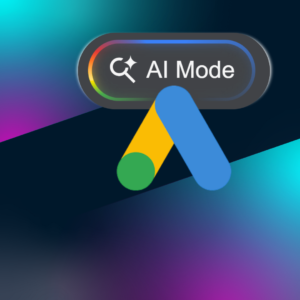WHAT IS IOS 14.5?
Released on the 26th April, the latest version of Apple’s mobile operating system, iOS 14.5, prompts iPhone and iPad users to opt out of tracking in apps that monitor their behavior and share data with third parties.
There’s no doubt about it, this new feature is a significant step for user privacy, as it gives people more control over their data and how it’s used by companies, such as Facebook and Google. On the other hand, the development has frustrated app developers, tech companies and advertisers who have relied on that data for years.
The biggest difference that most people have seen is the introduction of Apple’s new privacy tool, named App Tracking Transparency, which pops up when you first open an app:

WHAT IT MEANS TO MARKETERS
Understandably, this new privacy feature from Apple has caused panic amongst marketers and advertisers, primarily due to how it limits the amount that can be tracked from users in apps. Advertisers around the world rely heavily on this data, especially on Facebook and Instagram, to build audiences, measure conversions outcomes and track analytics.
It’s difficult to assess the impact of the change now, but before the update was released, it was estimated that the percentage of iPhone users sharing their unique Identifier for Advertisers (IDFA) with apps would drop from 70% to as low as 10%.
Perhaps the most alarming stat is that 96% of users access Facebook through the app, so this change is going to have a big impact, leading to those previously mentioned reduced tracking capabilities for marketers, but also reduced personalisation for users.
THE SOLUTION
So, what can you do? Are Facebook and Instagram still viable advertising platforms?
Yes.
There are methods of “circumventing” these changes that will enable you to still track users and measure conversions, and we’re going to introduce you to two of them now:
1. Facebook Conversions API
Instead or as well as using Facebook pixel, the conversion ads api is a bit of code you can insert which speaks directly to the sites servers, so don’t need to really on the cookies – can match users and record conversions that way
Operating either in solo or conjunction with the Facebook Pixel, Conversions API is a Facebook Business tool that lets you share key web and offline events, or customer actions, directly from your server to Facebook’s, helping to improve performance and measurement of your Facebook ad campaigns. You can use Conversions API to:
- Measure customer actions in more ways, giving further visibility into each unique customer journey
- Help improve accuracy of information sent for targeting, measurement and optimisation
- Control the data you share
Essentially, by using the Facebook Conversions API, you don’t need to rely on cookies.
2. FLoC
FLoC – the wider answer to the death of cookies – sends information in cohorts which is completely anonymised. The next big thing from cookies in order to measure, track and attribute
Developed as a solution to the death of third party cookies, Google has put forward a group of proposals called Privacy Sandbox with input from industry stakeholders. Privacy Sandbox provides a framework to shape how data is used on Google’s browser, with the aim to satisfy the needs of web users and advertisers (and Google of course).
One of these proposals, FLoC (The Federated Learning of Cohorts), is a promising solution to delivering relevant ads in a post-cookie landscape.
FLoC provides an alternative to cookie-based targeting by clustering groups of people into cohorts based on similar interests and browsing history. With large cohort sizes and cohort-sorting algorithms processed locally by the browser, the identity of the individual isn’t broadcast across the internet. Advertisers are able to effectively target these cohorts while maintaining the privacy of Chrome’s web users.
Google’s early tests show that with the use of FLoC cohort targeting, “advertisers can expect to see at least 95% of the conversions per dollar spent when compared to cookie-based advertising” and state that FLoC is an “effective replacement signal for third-party cookies”.
There’s no doubt about it, the arrival of iOS 14.5 heralds major changes to the privacy, data and advertising landscapes. If you want to find out how to mitigate the impact of these changes and discover how to get ahead of your competitors, get in touch with our digital experts today.





